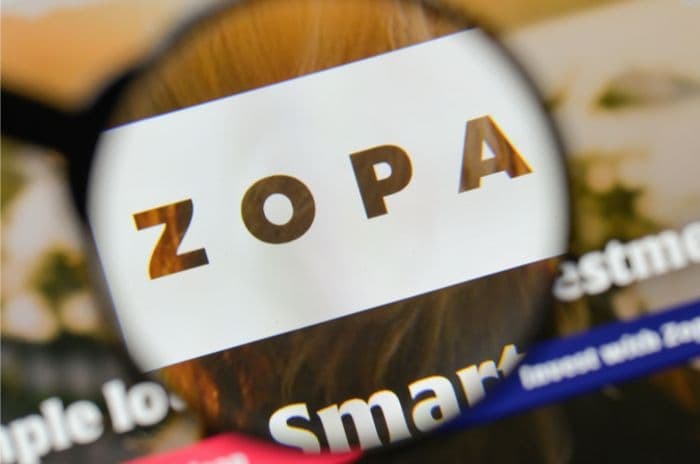Home > Money > News > Zopa launches hybrid bank
Zopa launches hybrid bank
P2P lender acquires banking licence to expand their business model and compete with mainstream banks.
Products including protected savings, credit cards and a money management app will be rolled out in 2019.
Zopa launched the first global peer-to-peer lending business in 2005 and now hopes to challenge traditional banking using its innovative proprietary technology.
It comes as other challenger banks such as Monzo are attracting customers through their advanced apps and streamlined services.

Zopa aim to take on traditional banks
Zopa's hybrid bank will combine their existing P2P lending business with their new digital banking arm under the banner of Zopa Group.
Products due to be launched in 2019 include a fixed term savings product that will be protected by the Financial Services Compensation Scheme (FSCS) in the same way that mainstream banks' savings products are.
The digital bank will also include a credit card product, with the launch of a new money management app for customers also on the horizon.
While the bank will be predominantly based around the app, they have promised effective customer service via phone.
The company has also pledged to give all customers a fair deal. This includes avoiding sign-up offers that are only available to new customers, delivering transparent banking with no hidden charges or fees.
Currently, the banking licence that Zopa has is subject to restrictions imposed by the Financial Conduct Authority (FCA) and Prudential Regulation Authority (PRA) during the "mobilisation" stage of launching a bank.
Only when the FCA and PRA are satisfied that Zopa has met its conditions will the restrictions be lifted, and it will be regulated in the same way as high street banks.
P2P model under scrutiny
Zopa's diversification into digital banking follows several years of scrutiny from the FCA about the financial security of peer-to-peer lending.
The P2P model allows investors with money to lend to borrowers for a fee using a P2P intermediary like Zopa.
For investors, there are greater rates of return than putting money into ISAs, while the interest rates for borrowers are also competitive.
However, the FCA is concerned that investors are placing their money into the P2P model without fully understanding the risks involved.
They proposed various rules for the sector, the most contentious of which is a suggestion that investors will have to be independently wealthy or a finance professional to be targeted by P2P promotions.
The FCA consultation has now closed and the final rules will be published in the middle of 2019.
Traditional banking sector under pressure
Zopa cite growing dissatisfaction with the traditional financial services industry as the catalyst for their new range of financial products.
They claim that their products will address customer frustrations at the gaps in service offered by traditional banks.
The most recent figures published by the FCA on consumer complaints found that general complaints to financial providers had risen 9% in the previous six months.
Several high-profile banking outages such as the ones that hit HSBC, Barclays and TSB in September caused a surge in complaints regarding those companies.
Zopa is hoping to use their proprietary technology to deliver a smooth digital banking service for their new customers in 2019.
Their chief executive, Jaidev Janardana, has previously highlighted the need for continually refreshing technology used rather than undergoing huge updates as traditional banks tend to do.
Subject to their full license being granted by the FCA, Zopa will be aiming to compete with the likes of challenger banks Starling and Monzo.
Those two banks recently landed the top spots at Smart Money People's Best British Bank Awards 2018.
Get insider tips and the latest offers in our newsletter
Get insider tips and the latest offers in our newsletter

We are independent of all of the products and services we compare.

We order our comparison tables by price or feature and never by referral revenue.

We donate at least 5% of our profits to charity, and we have a climate positive workforce.
Latest News

26 October 2022
Cost of living showing worrying trends in affordability
24 August 2022
Home insurance premiums fall in latest ABI figures
29 June 2022
APP fraud and mobile banking fraud increased in 2021

